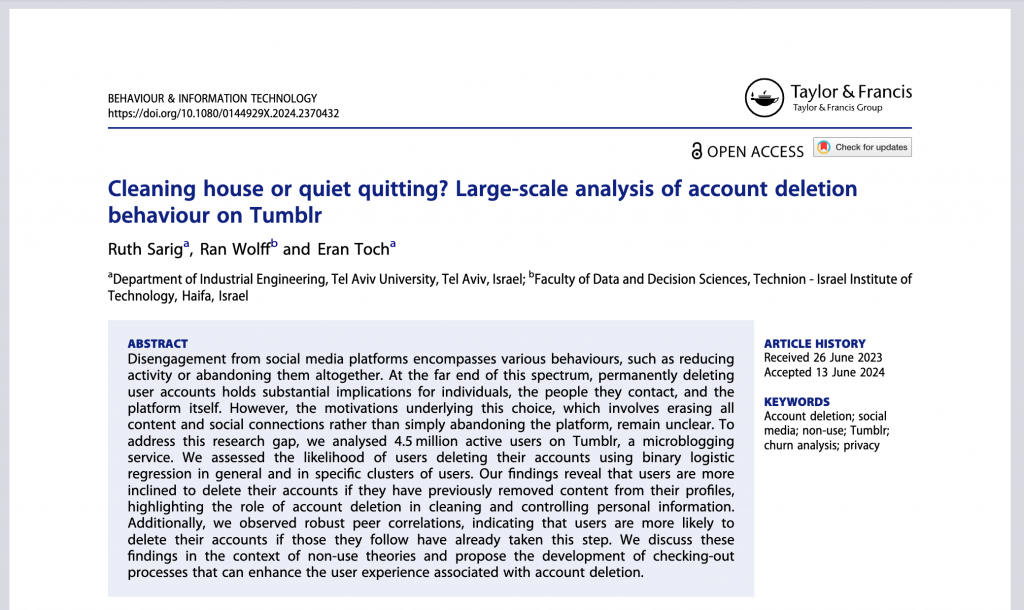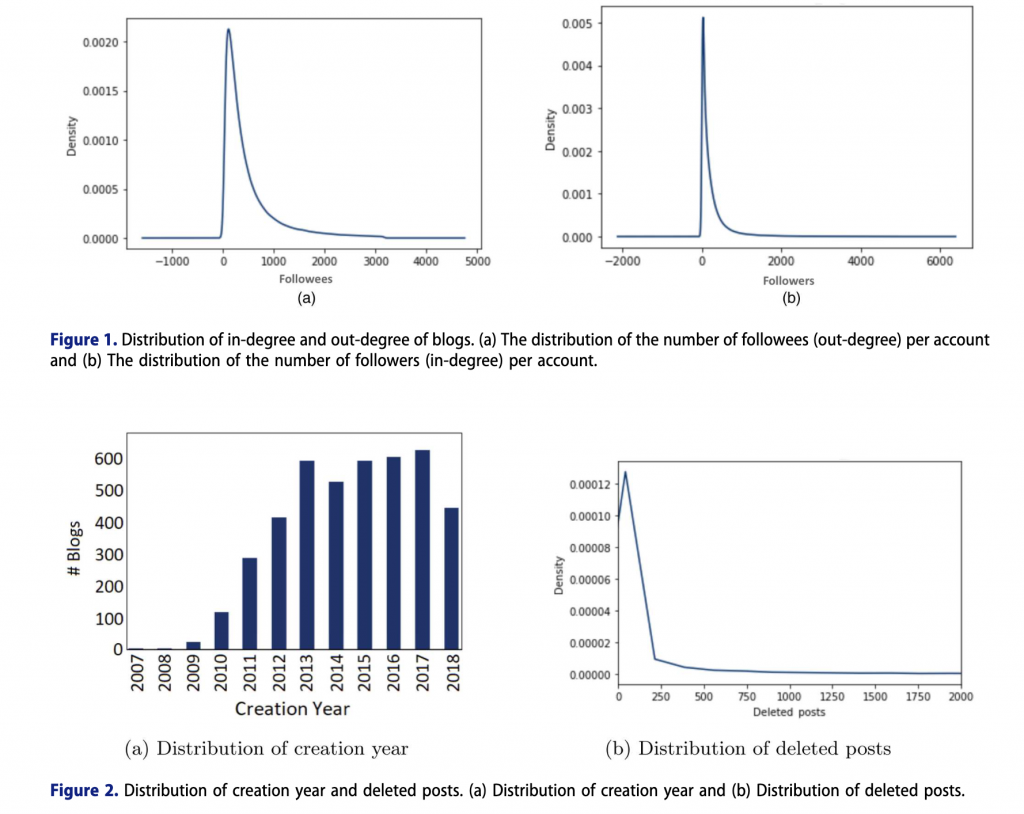Published paper: Cleaning house or quiet quitting? Large-scale analysis of account deletion behaviour on Tumblr
|
Have you ever deleted a social media account? Why did you do that? In a new paper, Cleaning house or quiet quitting? Large-scale analysis of account deletion behaviour on Tumblr, we analyzed 4.5 million users to find out why only certain people in certain contexts delete their account. The paper was published at Behaviour & Information Technology, and written by Ruth Sarig (a Master student in the group), Ran Wolff (from Amazon Research), and Eran Toch.
We assessed the likelihood of #Tumblr users to delete their account in a four-month window using binary logistic regression, based on a sample of 4.5 active users and about 1.5 non-active users. Surprisingly, account deletion is much more common among more active users than for less active users. Account deletion represents a proactive and often final action, requiring users to take deliberate and challenging steps. Account deletion can be perceived as a process of controlling personal information: the likelihood of users to delete their accounts by about by approximately 65% if they have previously removed content from their profiles. Social influence also plays a crucial role in account deletion: if half of the accounts a user follows are deleted within a month, the chances of deleting their own account increase by approximately 86% (while controlling for activity, network size, and other peer effects).
Based on our findings, we propose various strategies to improve the account deletion experience and to address potential factors contributing to user disengagement from social media platforms. The access to the paper is open, and can be found here
|

